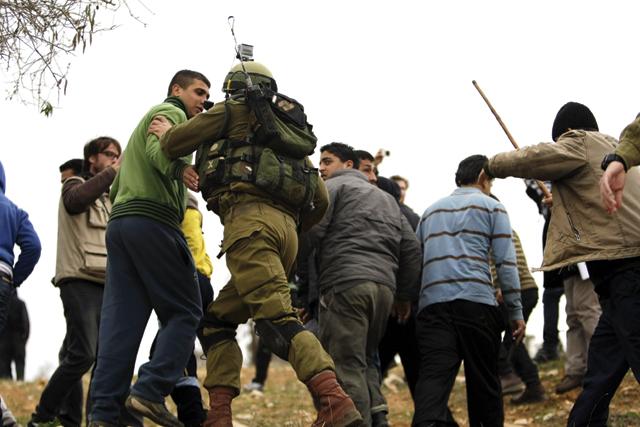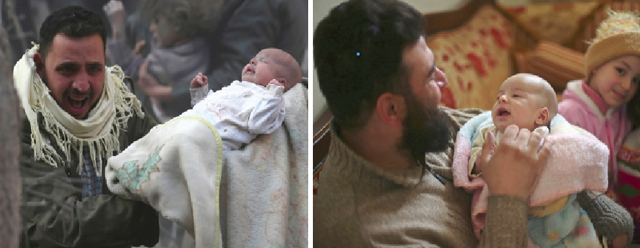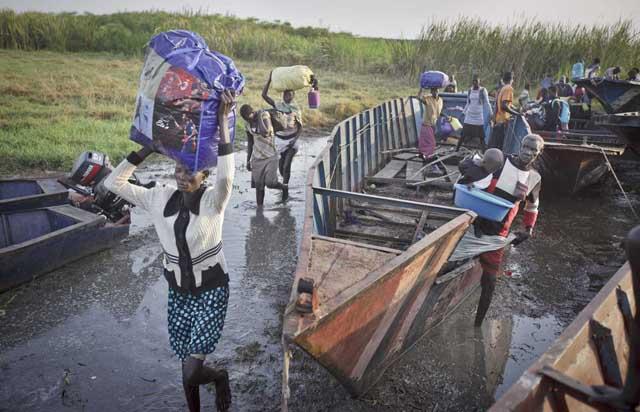OCCUPIED JERUSALEM — Israel’s defence minister accused US Secretary of State John Kerry of an “incomprehensible obsession” with his push for Middle East peace, drawing an angry response from Israel’s chief ally Tuesday.
The US State Department described Defence Minister Moshe Yaalon’s comments as “offensive,” in a mark of the degree of outrage in Washington at the latest public spat between the two allies, which follows a major row over Iran policy.
Israel’s top-selling newspaper Yediot Aharonot quoted Yaalon as expressing hope that Kerry, who has visited the region 10 times since taking office in February 2013, would end his peace push and focus his energies elsewhere.
“The American plan for security arrangements that was shown to us isn’t worth the paper it was written on,” Yaalon was quoted as saying in private conversations with Israeli officials, accusing Kerry of being naive and implying he is a nuisance.
The State Department said Yaalon’s reported remarks were “inappropriate” for a minister in the government of a close ally.
“The remarks of the defence minister, if accurate, are offensive and inappropriate especially given all that the United States is doing to support Israel’s security needs,” spokeswoman Jennifer Psaki told reporters.
Psaki said Kerry and his team “have been working day and night to try to promote a secure peace for Israel because of the secretary’s deep concern for Israel’s future”.
“To question his motives and distort his proposals is not something we would expect from the defence minister of a close ally,” she said.
Kerry coaxed Israelis and Palestinians back into direct negotiations last summer and has since shuttled tirelessly between the two leaderships in a bid to keep the talks alive.
His proposals include a security plan for the border between a future Palestinian state and neighbouring Jordan, involving high-tech equipment to enable Israel to reduce or end its troop presence on the ground, Israeli media say.
But Yaalon said the idea of technology replacing boots on the ground was naive.
“What are you talking about?” he reportedly asked Kerry during a meeting. “I ask you: how will technology respond when a Salafist or Islamic Jihad cell tries to commit a terror attack against Israeli targets? Who will engage them?”
Yaalon said after years of living the conflict, he understood a lot more about the Palestinians than the US top diplomat.
“Secretary of State John Kerry — who arrived here determined, and who operates from an incomprehensible obsession and a sense of messianism — can’t teach me anything about the conflict with the Palestinians,” he was quoted as saying.
“The only thing that might save us is if John Kerry wins the Nobel Prize and leaves us be.”
Yaalon’s public criticism of the US top diplomat earned him a rebuke from Prime Minister Benjamin Netanyahu as well as other government ministers.
“Even when we have disagreements with the United States, it is about the matter at hand and not about the person,” Netanyahu said at the opening of the winter session of parliament.
Intelligence Minister Yuval Steinitz told army radio that while he agreed with the “content” of Yaalon’s remarks, the defence minister should avoid “personal insults”.
Writing on Facebook, Justice Minister Tzipi Livni, Israel’s chief negotiator with the Palestinians, said: “We can oppose negotiations in a responsible and measured way, without compromising relations with our best friend.”
Yaalon’s remarks came on the back of a US-Israeli spat over a landmark deal Washington and other world powers reached with Iran in November on its controversial nuclear programme.
Israel publicly opposed the plan, which will see limited relief for Tehran from Western sanctions in exchange for rolling back parts of its civil nuclear programme, describing it as a “disaster” and a “gift” to its biggest foe.
Israel has also been at loggerheads with its US ally over its drive to expand its settlements in the occupied West Bank, including annexed Arab East Jerusalem, even while the peace talks with the Palestinians that Kerry helped relaunch are under way.
Just last week, Israel unveiled plans to build another 1,800 new settler housing units, hot on the heels of Kerry’s latest visit.
A senior US official on Tuesday reiterated Washington’s opposition to settlement building, which it has called “illegitimate”.
















